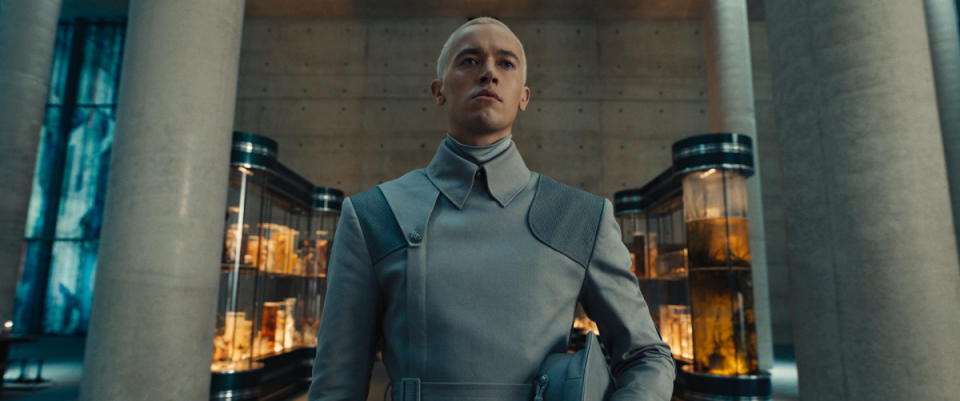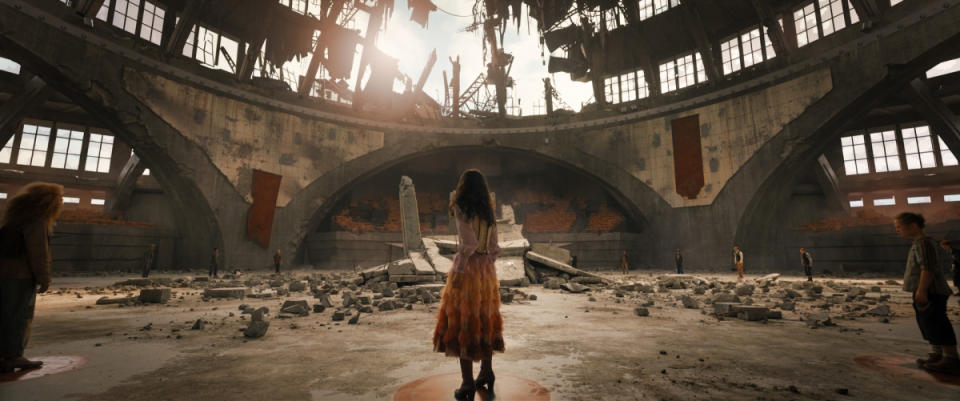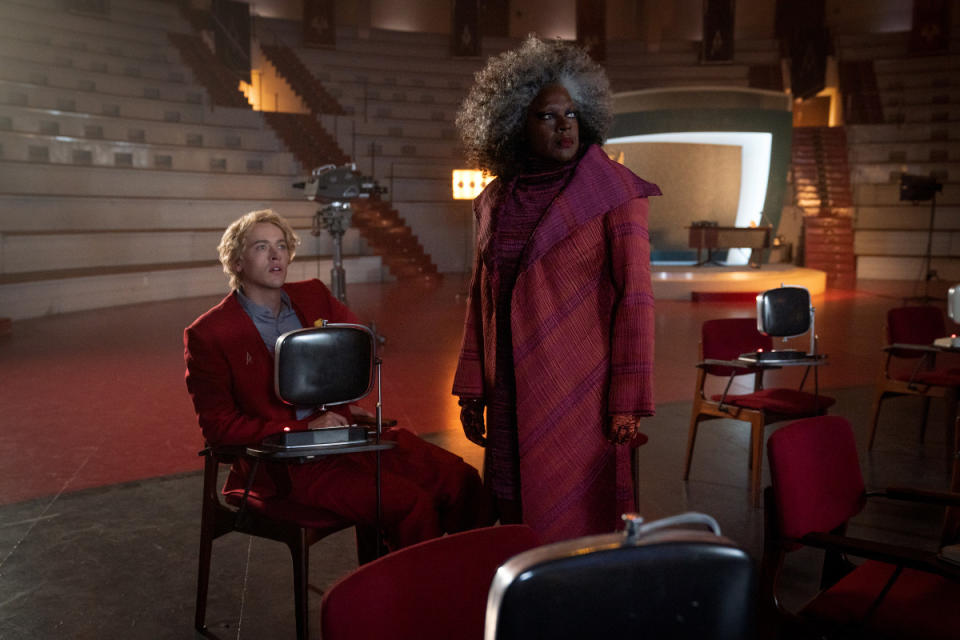The Hunger Games: The Ballad of Songbirds and Snakes Review: An Undeniably Captivating Tale of Fear and Power
- Oops!Something went wrong.Please try again later.
- Oops!Something went wrong.Please try again later.
You are born, and then you are made.
65 years before Katniss's Hunger Games, there was The Ballad of Songbirds and Snakes, which takes us through the story of the 10th Hunger Games and how they grew to become the event we know today.
Through the eyes of a young Coriolanus Snow - or President Snow as he is known in the original films - The Ballad of Songbirds and Snakes explores how fear can overcome us, leading us down a dark and destructive path.
Tom Blyth slips into the metaphorical shoes that Donald Sutherland once wore to show us the boy hiding deep inside the tyrant. The once-great Snow family are poverty-stricken, with their only hope left being that Coriolanus might win The Academy's prize, which will be his launchpad to brighter prospects. When that opportunity is stripped in an instant, the animalistic fight or flight kicks in, and we watch the slow descent of Snow.

Courtesy of Lionsgate
Suzanne Collins wrote 517 brilliant pages of context in her 2020 novel, but even with a lengthy run time of 157 minutes, it is impossible to insert every intelligent thing Collins wrote.
Blyth embodies every inch he can, internalising every nuance so that even when he is not speaking, the audience knows exactly where he stands. There is a laundry list of things that changed from page to screen, yet it keeps its captivating core, largely down to Blyth's performance, keeping you on the edge of your seat as you wonder which corner Snow will turn next.
The Ballad of Songbirds and Snakes expects an intellectual audience. It refuses to orchestrate your feelings, mirroring how Collins positions readers in her book.
Snow is the every man. Scared of what has come and fearful of what's to be. He is in no position to not fight for his life, and this complexity breathes inside Blyth's portrayal of a boy who is neither good nor bad but simply a product of his circumstances. Director Francis Lawrence elevates the horror of Snow by generating empathy for the character we've known as a villain, making his journey satisfying in a way that unsettles its audience.

Courtesy of Lionsgate
And before there was Katniss, there was Lucy Gray Baird - the anti-Katniss - a born performer who learns to survive by her "charms" and masks her truth in favour of self-preservation. The two may be opposites in their approach, but Katniss and Lucy Gray are fighting the same thing: a life free from the authoritarianism of a government that weaponises war and trauma under the guise of order and control.
Tom Blyth as Snow and Rachel Zegler as Lucy Gray are undeniably captivating scene partners as mentor and mentee because their wants work against each other. Even when their desires sing in harmony, there's an inherent distance in their individual experience of the war.
Despite their political differences, they are drawn to one another, compelled by an equal desire to live safely, free of fear. Snow experiences a sequence of events that radicalises him in the way that the same sequence of events radicalises Lucy Gray in the opposite direction. As they grow closer together, they grow further apart.
The children are not the only ones suffering. The Capitol adults are drowning in their own consequences of war, whether that's through delusion, addiction or excessive humour. Through Viola Davis, Peter Dinklage and Jason Schwartzman, we see how the cyclical nature of war and dictatorship infects youth. Davis and Blyth have an interesting dynamic in that Davis' Dr. Volumnia Gaul is moulding Snow without him being cognizant of the fact. Gaul is the President Snow of this film, and we see how her teeth sink into him, poisoning his impressionable mind.

Murray Close/Lionsgate
All of this fantastic character work would be obsolete without the astounding craftspeople of the film building a world for us to live inside. From Director Francis Lawrence to Uli Hanisch's production design and Jo Willems's cinematography, we see the immense effort put into every frame. Making a period piece within an established universe is no mean feat, yet the world felt simultaneously familiar and new. The evident care put in by everyone makes for stellar viewing. It is easy to immerse yourself in Panem with the added twist of the worn-torn Capitol before it became the built-up place of luxury we know it to be.
The Ballad of Songbirds and Snakes is a fantastic addition to the beloved Hunger Games universe in a world littered with meaningless sequels and reboots. It is rich, layered with intelligence that speaks to a generation as hungry for a world free of tyranny as the one that grew up with the original series. With all the added context from our real lives since 2015, when the final Mockingjay installment hit our screens, it reminds us of the urgency to rebel against what took over Snow so effortlessly.

